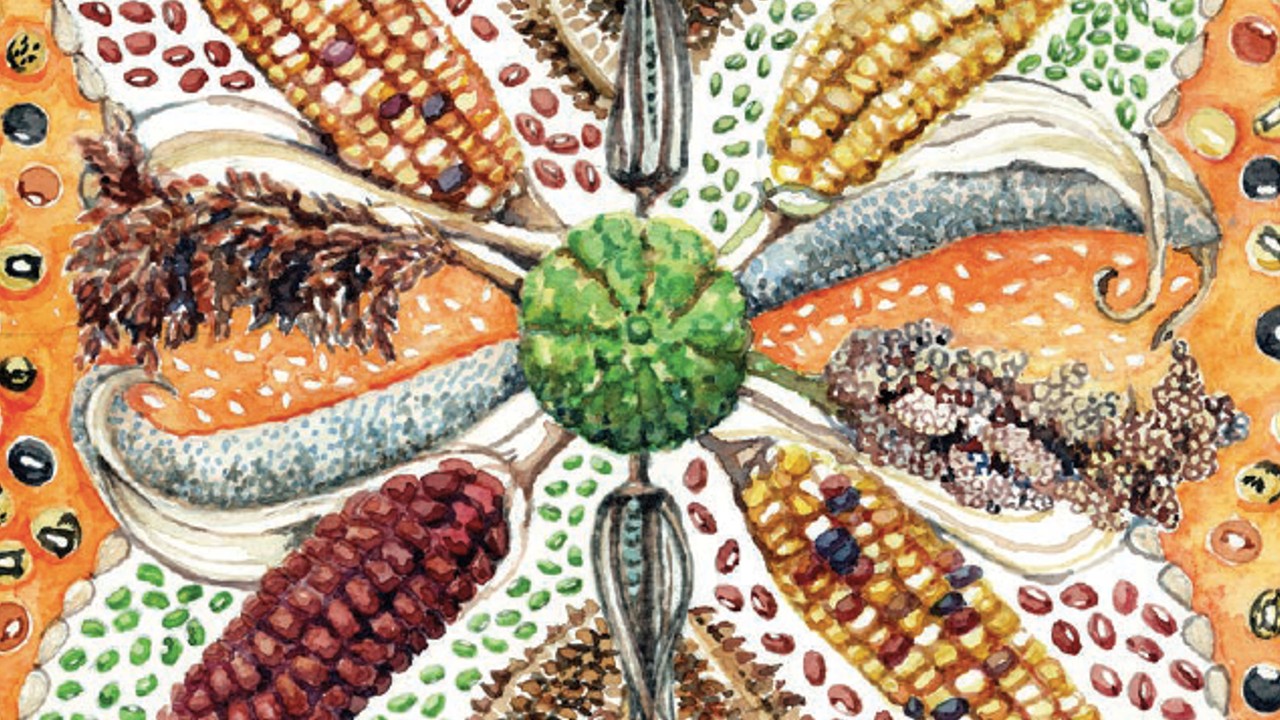Latest Seed Sovereignty Resources
23 March 2018
Seed policy paper: Towards national and regional seed policies in Africa that recognise and support farmer seed systems
The African Centre for Biodiversity (ACB) has prepared this policy discussion document as a contribution towards national and regional seed policies in Africa that recognise and support farmer seed systems. The document is an effort to synthesise the policy issues emerging from our research and advocacy work on farmer seed systems in the past few […]
READ23 February 2018
Face to Face: African CSOs confront ARIPO, SADC over Draconian Harmonised Seed Laws
The ACB has the pleasure of sharing with you a short 5-minute video of the Southern African seed law and seed sovereignty dialogue, Face to Face: African CSOs confront ARIPO, SADC over Draconian Harmonised Seed Laws, co-hosted by the ACB in partnership with PELUM-Zimbabwe, which took place in Harare, Zimbabwe, 28-30th June 2017. Please watch […]
READ29 January 2018
Celebrating smallholder farmers and seed diversity in South Africa: Report from the national seed dialogue and celebration
On 8 and 9 December 2017 the African Centre for Biodiversity (ACB) hosted a national seed dialogue and celebration at Constitution Hill in Johannesburg. Farmer representatives from eight provinces, along with civil society organisations, academics, and officials from the Agricultural Research Council and Department of Agriculture, Forestry and Fisheries (DAFF) participated in cultural events and […]
READ15 January 2018
Status report on the SADC, COMESA and EAC harmonised seed trade regulations: Where does this leave the regions’ smallholder farmers?
The Status Report on the SADC, COMESA and EAC harmonised seed trade regulations: Where does this leave the regions’ smallholder farmers? researched and written by Linzi Lewis and Sabrina Masinjila of the African Centre for Biodiversity (ACB), provides a brief background and status update on efforts by regional economic communities to harmonise seed trade and […]
READ2 February 2017
Against the odds, smallholder farmers maintain agricultural biodiversity in South Africa
This report is a result of research conducted in partnership with Tshintsha Amakhaya, Farmer Support Group, TCOE Zingisa and Surplus People Project. The report investigates the state of farmer-managed seed systems in rural South Africa. Through three case studies in Eastern Cape, Northern Cape and KwaZulu-Natal, the report highlights both the fragility and perseverance of […]
READ2 June 2016
Integration of small-scale farmers into formal seed production in South Africa
The scoping report looks at key policies, legislation and programmes in SA with an emphasis on seed laws and considers the implications for small- scale farmer involvement in this sector and outlines a few projects on community seed production, indigenous crops and black- owned private sector seed production efforts.
READ27 November 2012
Harmonisation of Africa’s seed laws: death knell for African seed systems
The African Centre for Biosafety (ACB) has released its new report titled, ‘Harmonisation of Africa’s seed laws: a recipe for disaster- Players, motives and dynamics. The report shows how African governments are being co-opted into harmonising seed laws relating to border control measures, phytosanitary control, variety release systems, certification standards and intellectual property rights, to […]
READ23 November 2012
Harmonisation of Africa’s seeds laws: a recipe for disaster
The core of the paper is focused on the pressures being exerted on African governments to adopt the 1991 Act of the International Union for the Protection of Plant Varieties (UPOV), particularly through regional harmonisation of plant variety protection (PVP) policies and laws. We also discuss the adverse impacts PVP laws will have on the […]
READ16 May 2012
South Africa’s Seed Systems: Challenges for food sovereignty
The African Centre for Biosafety and Trust for Community Outreach and Education, have the pleasure of sharing with you, our new study, which provides an overview of the structure of the seed system in South Africa, the types of seed in use and their pros and cons, the legislative and policy environment, and the role […]
READ








